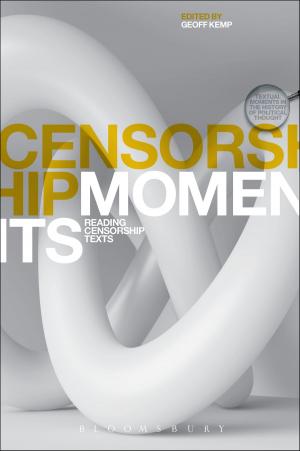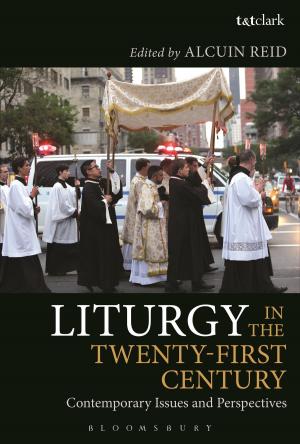The Persistence of Religion
Comparative Perspectives on Modern Spirituality
Nonfiction, Religion & Spirituality, Philosophy, Ethics & Moral Philosophy, Social & Cultural Studies, Political Science| Author: | Harvey G. Cox, Daisaku Ikeda | ISBN: | 9780857731203 |
| Publisher: | Bloomsbury Publishing | Publication: | September 30, 2009 |
| Imprint: | I.B. Tauris | Language: | English |
| Author: | Harvey G. Cox, Daisaku Ikeda |
| ISBN: | 9780857731203 |
| Publisher: | Bloomsbury Publishing |
| Publication: | September 30, 2009 |
| Imprint: | I.B. Tauris |
| Language: | English |
In the nineteenth century, Nietzsche famously announced that God was dead. In the twentieth century, an increasing reliance on science and technology led to a widespread rejection of belief on the grounds of its irrationality. Yet for all the scepticism directed towards it, religion has not died. In fact, the opposite has occurred: it has persisted and proliferated. Despite the relentless pursuit of scientific advancement, in the twenty-first century religious influence may be seen everywhere. In this thoughtful and wide-ranging dialogue, two leading commentators on religion address - from their different but complementary traditions of Christianity and Buddhism - the continuing appeal of spirituality to people eager to explore fundamental questions of meaning and identity. The authors indicate that science, for all the benefits it has conferred, has limits of explanation. It may be able to show how, but not necessarily why. Yet belief too must not go unchallenged, since, as Ikeda says at one point in the dialogue, 'religion can become either a medicine or a poison.'
What then is the proper role of religion in a world troubled by intolerance and extremism? The authors point to the significant place that it has in dialogue, education and peacebuilding. They emphasise the centrality of non-violence, and the inspiring examples of Gandhi, Martin Luther King and Nelson Mandela. In so doing they recount their own formative experiences of involvement in the civil rights movement and protest against Vietnam (Cox) and personal exposure to the misery and destruction of war (Ikeda). Their joint vision of a just and true religious sensibility makes a vital contribution to the fields of religion, peace studies and ethics.
In the nineteenth century, Nietzsche famously announced that God was dead. In the twentieth century, an increasing reliance on science and technology led to a widespread rejection of belief on the grounds of its irrationality. Yet for all the scepticism directed towards it, religion has not died. In fact, the opposite has occurred: it has persisted and proliferated. Despite the relentless pursuit of scientific advancement, in the twenty-first century religious influence may be seen everywhere. In this thoughtful and wide-ranging dialogue, two leading commentators on religion address - from their different but complementary traditions of Christianity and Buddhism - the continuing appeal of spirituality to people eager to explore fundamental questions of meaning and identity. The authors indicate that science, for all the benefits it has conferred, has limits of explanation. It may be able to show how, but not necessarily why. Yet belief too must not go unchallenged, since, as Ikeda says at one point in the dialogue, 'religion can become either a medicine or a poison.'
What then is the proper role of religion in a world troubled by intolerance and extremism? The authors point to the significant place that it has in dialogue, education and peacebuilding. They emphasise the centrality of non-violence, and the inspiring examples of Gandhi, Martin Luther King and Nelson Mandela. In so doing they recount their own formative experiences of involvement in the civil rights movement and protest against Vietnam (Cox) and personal exposure to the misery and destruction of war (Ikeda). Their joint vision of a just and true religious sensibility makes a vital contribution to the fields of religion, peace studies and ethics.















